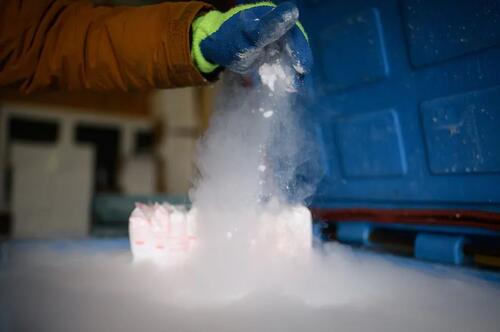
On Monday, the pharmaceutical company Pfizer announced early data that showed a vaccine it has been developing in partnership with the German drug manufacturer BioNTech was more than 90 percent effective in preventing covid-19. This level of efficacy amazed researchers, including those at my own institution, Yale School of Medicine, who agreed that if the data holds (it has not yet been peer reviewed), then this vaccine would be poised to dramatically curtail the impact of the virus.
This news made headlines, along with Joe Biden’s and Kamala D. Harris’s rollout of a covid-19 task force composed of biomedical experts, suggesting even as the number of daily new infections reached an all-time high in the U.S., a cure was in sight. But, storing and distributing a vaccine — especially the potential Pfizer vaccine, which must be frozen until use at -70°C, around the temperature of dry ice — poses a significant challenge.